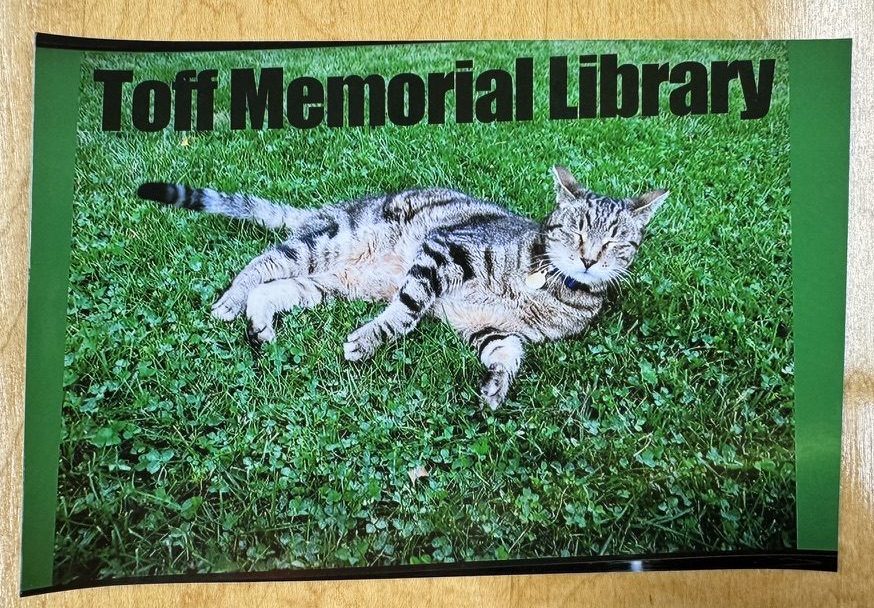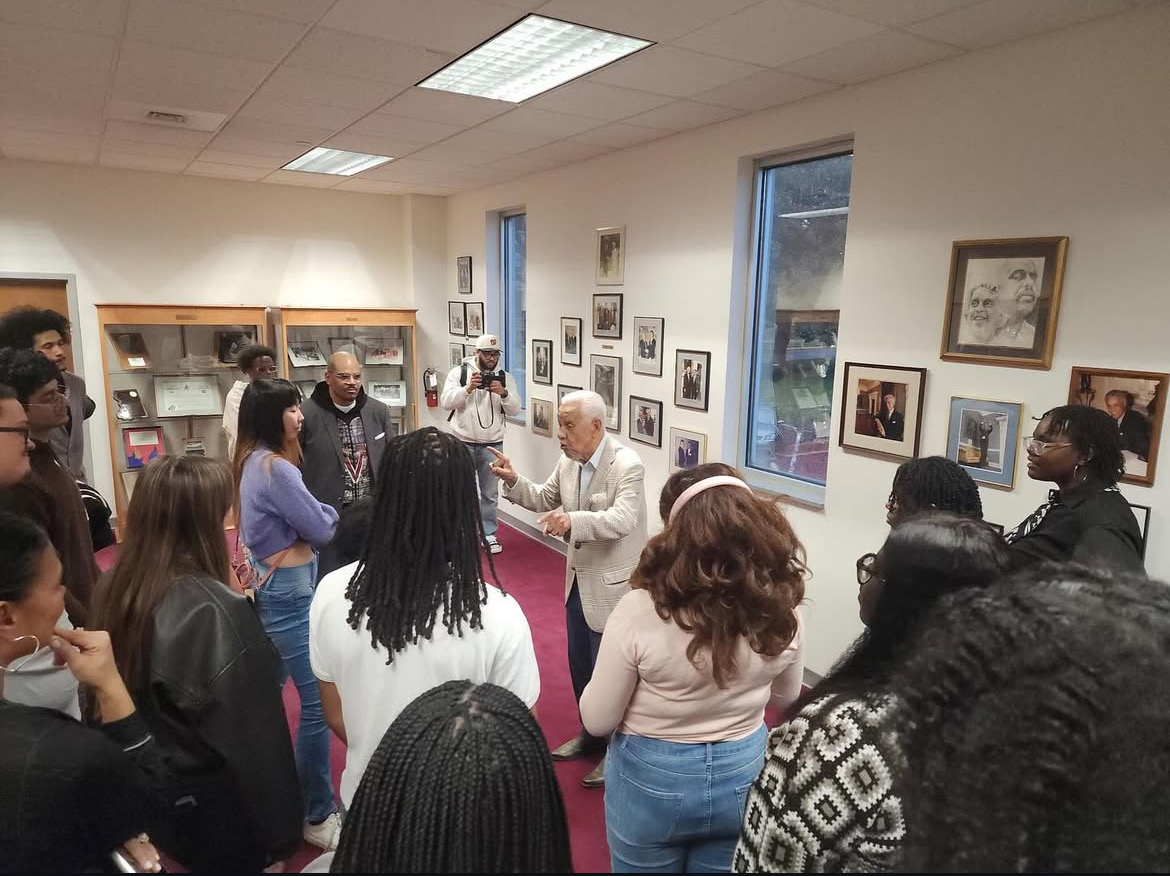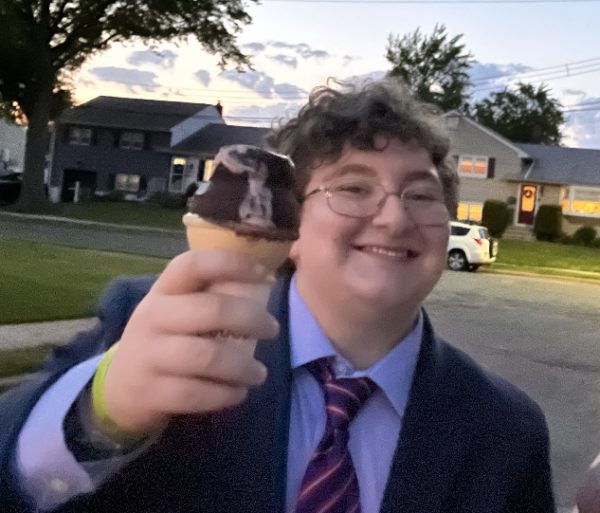On Sunday, Jan. 14, dozens of students, faculty, staff and community members gathered in the Skinner Memorial Chapel for a service of remembrance and celebration honoring the Reverend Dr. Martin Luther King Jr. The event included reflections and readings from student members of the Black Student Alliance (BSA), a speech from Rev. Kelly H. Chatman, and a multitude of songs from Robert E. Robinson, described in the event program as the “Pavarotti of Gospel” and “the best gospel singer in Minnesota.”
After an opening song from Robinson, BSA board member Maeva Tchouaffe ’25 welcomed the attendants to the service and introduced Chatman as the guest speaker. Jeremiah Dawson ’27 then performed an interpretive reading of portions of Dr. King’s “Letter from Birmingham Jail” that were provided in the chapel programs. The reading concluded in an open-ended manner, with Dawson reading: “Will we be extremists for hate or for love? Will we be extremists for the preservation of injustice or for the extension of justice?”
Another song from Robinson transitioned the service towards remembering the life and achievements of Dr. King. Taia Bush ’24 offered a “special honorance and uttering for the dreamer,” in which they emphasized the human condition of being human and our special ability to dream. They then sang the song “Plastic” by Moses Sumney. Awa Cisse ’27 spoke next, discussing both the progress our society has made in terms of civil rights and the steps the United States needs to take in order to truly establish justice. They acknowledged King’s profound impact on the civil rights movement, his teachings and the injustices King himself suffered. Despite King’s accomplishments, Cisse asserted America still has a long way to go, listing the recent Black victims of police brutality. They ended their speech: “we have come so far, but we still have a long way to go.”
Before his next song, Robinson spoke briefly about his history in the church. “I guess you can figure out by now I was raised in the church,” he said. “If you can’t, keep listening.” He recounted memories of people acting one way at Sunday service and then in a completely [JUMP]
different manner the rest of the week. He then sang a song about “living the life you talk about.”
Robinson’s song was followed by two readings, the first being one of Dr. King’s speeches “Where Do We Go From Here” read by T’airra Champliss ’24. This speech contained strong themes of anti-imperialism, striving for economic equality and justice for people around the world. “We are now faced with the fact that tomorrow is today,” read Champliss. Next, Lettu Konshie ’24 read the poem “Waiting on the Mayflower,” written by Evie Shockley. This poem opens with a quote from Frederick Douglass, saying, “What, to the American slave, is the 4th of July?” Konshie encouraged those gathered to close their eyes during the reading of the diary-style account of African-American life from 1619 until 1976.
After the readings, Associate Chaplain for Christian and Interfaith Life Mary Perez led the attendants in a candle-lighting ceremony where people were encouraged to light a candle, set it in a bowl of sand and reflect on what the life and teachings of Dr. King meant to them. “What words resound within you? How does Dr. King live within you?” Perez asked while introducing the ceremony. Students and community members spoke about a variety of things as they placed their candles in the sand. These statements touched on feelings of hope, community and concern about injustices happening around the world today, favorite teachings from Dr. King and how people live their lives according to what Dr. King has taught them.
Nyemade Fallah ’24, co-president of the BSA, then read a portion of scripture, reciting John 1:43-46. This was the text that Chatman cited in his speech, which followed. Before he spoke about the scripture, Chatman led an interactive lesson about the cycle of oppression. Using women, victims of police brutality and students of color as examples, Chatman shared how the targeting of a certain group leads to misinformation about that group which in turn leads those who are oppressed internalizing their status and makes them more of a target. He asked the audience for examples at each phase of the cycle to prove how widespread this misinformation can be . “Did any of you read a book about that before giving your input?” Chatman asked. He cited the importance of the people who set them up in the first place dismantling these cycles He said, “Who sets up the cycle? We do. Who do we blame for the cycle? The people that we target.”
Chatman used the lessons of cycles of oppression to give context for the Bible verses read earlier. In the text, Philip excitedly tells Nathaniel that he has found the Messiah, who he says is Jesus of Nazareth. Nathaniel responds, “can anything good come from Nazareth?” Chatman claimed this stereotyping of those from Nazareth is counteracted by Jesus’s message of aligning himself with those who are victims in the cycle of oppression.
Chatman went on to recount his family’s move to Detroit during the Great Migration, and how his parents were victims of segregation in the South. “I’m of an age where this stuff is real to me,” Chatman said. The first minister he had ever seen was Dr. King speaking on television, and his message spoke to him. Chatman finished his speech by calling those in attendance to not get caught up in cycles, to liberate themselves, to be in solidarity with one another and for each person to claim their own voice.
Frank Sheffield ’24, a BSA board member, offered closing remarks. He encouraged those gathered to continue in Dr. King’s footsteps, as the journey towards justice is still ongoing: “The fight for justice and equality is not confined to history…let us carry forth the torch of Dr. King’s journey.”











